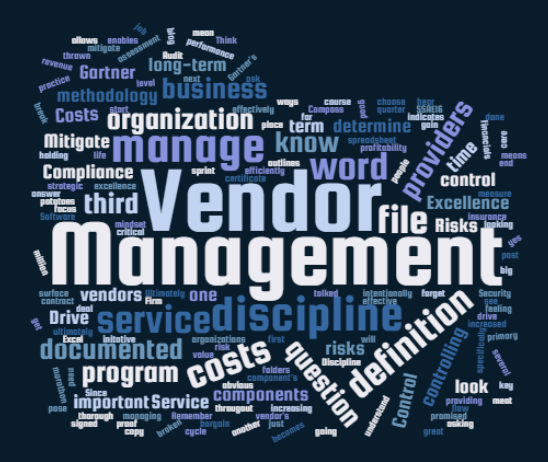Should You Outsource Your IT Department?
In today’s rapidly evolving technological landscape, businesses face increasing pressure to stay ahead of the curve while managing costs, ensuring security, and meeting customer expectations. One of the key decisions organizations must make is whether to maintain an in-house IT department or outsource their IT needs to third-party providers. Both options have distinct advantages and drawbacks, and the right choice depends on factors unique to each business. This blog explores the considerations surrounding IT outsourcing, offering a balanced view to help you decide what’s best for your organization.
Why Outsource IT?
Outsourcing IT operations refers to the practice of hiring external service providers to manage and deliver IT functions, including infrastructure, software development, cybersecurity, and help desk support. Companies may choose to outsource their IT needs for several reasons:
- Cost Efficiency: Many businesses find that outsourcing can reduce costs compared to maintaining an in-house team. This is especially true for small to medium-sized businesses (SMBs) that lack the budget to build a robust IT department.
- Access to Expertise: Outsourcing IT allows companies to leverage the specialized skills and experience of professionals who are well-versed in the latest technologies and industry standards. Many of these professionals hold recognized credentials such as ITIL Certification, which ensures adherence to proven IT service management practices
- Focus on Core Business: By delegating IT management to an external provider, companies can focus more on their core business functions, driving growth and innovation.
- Scalability: Outsourcing provides flexibility to scale IT resources up or down based on the organization’s needs, ensuring efficiency without overcommitting resources.
- Risk Mitigation: IT providers often have robust security protocols and disaster recovery plans in place, reducing the risk of cyberattacks or data loss.
Advantages of IT Outsourcing
- Cost Savings: Outsourcing IT eliminates the need for costly infrastructure investments, recruitment and training of employees. Businesses can convert fixed IT costs into variable expenses, paying only for the services they need. This model is particularly attractive to startups and SMBs operating on tight budgets.
- Access to Advanced Technology: IT service providers invest heavily in cutting-edge technology to remain competitive. By outsourcing, businesses gain access to advanced tools and platforms that may otherwise be unaffordable or difficult to implement in-house. This is a key reason why 92% of companies now use a multicloud strategy, with 9 in 10 reporting improved security after making the switch.
- Expertise and Experience: IT providers employ teams of specialists with deep knowledge in various areas, from cloud computing to cybersecurity. These experts bring best practices and valuable insights that can improve operational efficiency.
- 24/7 Support: Many outsourcing firms offer round-the-clock support, ensuring minimal downtime and faster issue resolution. This is especially critical for companies with global operations or those that rely heavily on online platforms, where everyday help desk issues—such as employees reporting HDMI not working on Mac when connecting external displays—need to be resolved quickly to avoid productivity loss.
- Reduced Risk of Downtime: Outsourcing providers often have robust systems in place to prevent and address IT issues, such as backup solutions, disaster recovery plans, and cybersecurity measures. This reduces the risk of costly downtime.
- Scalability and Flexibility: As your business grows, your IT needs will evolve. Outsourcing allows you to scale services without the logistical and financial challenges of hiring and training new staff or upgrading infrastructure.
Disadvantages of IT Outsourcing
- Loss of Control: One of the most significant downsides of outsourcing IT is the loss of direct control over IT functions. Businesses must rely on the provider’s expertise and responsiveness, which can sometimes lead to misaligned priorities or delayed solutions.
- Data Security Risks: Sharing sensitive data with a third-party provider introduces potential security vulnerabilities. While reputable providers implement strong security measures, the risk of data breaches or misuse cannot be completely eliminated.
- Hidden Costs: While outsourcing is often marketed as cost-effective, hidden fees or unexpected expenses can arise. These may include charges for additional services, contract amendments, or penalties for early termination.
- Dependence on a Third Party: Over-reliance on an external provider can be risky if the vendor fails to meet expectations, goes out of business, or encounters its own technical challenges. Businesses may find themselves scrambling to fill gaps in critical IT functions.
- Limited Customization: Outsourcing providers often use standardized processes to serve multiple clients, which may not align perfectly with your organization’s unique needs. This lack of customization can impact the effectiveness of IT solutions.
- Communication Barriers: Outsourcing to providers in different time zones or regions can lead to communication delays and misunderstandings. Cultural differences and language barriers may also complicate collaboration.
When to Consider Outsourcing IT
Outsourcing IT is not a one-size-fits-all solution. It works best in certain scenarios, including:
- Small to Medium Businesses: SMBs that lack the resources to build and maintain an in-house IT team can benefit significantly from outsourcing.
- Rapidly Growing Companies: Organizations experiencing rapid growth often need scalable IT solutions that can keep pace with expansion.
- Specialized Projects: Companies requiring expertise for short-term or highly specialized projects, such as cloud migration or software development, may find outsourcing a practical choice.
- Limited Internal Expertise: Businesses without the internal expertise to handle complex IT functions, such as cybersecurity or compliance, should consider outsourcing to professionals.
When to Keep IT In-House
Maintaining an in-house IT department may be preferable in the following cases:
- Highly Sensitive Data: Organizations that handle highly sensitive or regulated data, such as financial institutions or healthcare providers, may prefer to keep IT in-house for greater control and security.
- Industry-Specific Needs: Companies with highly specialized IT requirements may find it more effective to develop solutions internally.
- Large Enterprises: Larger organizations often have the resources to build robust in-house IT teams capable of handling their needs.
- Strategic Importance: If IT is a core component of your business strategy, having an in-house team ensures alignment with long-term goals.
Hybrid Approach: The Best of Both Worlds?
Some businesses adopt a hybrid approach, combining in-house IT with outsourced services. This model allows companies to retain control over critical functions while leveraging external expertise for specialized tasks. For example, an organization may maintain an in-house team to manage day-to-day operations and outsource cybersecurity, tech talent sourcing, or offshore software development services to external providers.
The hybrid model offers flexibility and can be tailored to meet specific business needs. However, it requires careful planning and coordination to ensure seamless integration between internal and external teams.
Factors to Consider Before You Outsource Your IT
Before deciding to go the route of an outsourced IT department, consider the following factors:
- Business Goals: Align your IT strategy with your overall business objectives. Determine whether outsourcing supports your long-term goals.
- Budget: Conduct a cost-benefit analysis to compare the expenses of outsourcing versus maintaining an in-house team.
- Vendor Reputation: Research potential providers thoroughly, including their track record, client reviews, and certifications.
- Data Security: Ensure the provider has robust security measures and complies with relevant regulations.
- Service Level Agreements (SLAs): Define clear SLAs to set expectations for service quality, response times, and issue resolution.
- Scalability: Choose a provider that can adapt to your business’s changing needs.
- Communication: Establish effective communication channels to minimize misunderstandings and delays.
Final Thoughts
Deciding whether to outsource your IT department is a complex decision with significant implications for your business. While outsourcing offers cost savings, access to expertise, and scalability, it also comes with risks such as loss of control and potential security vulnerabilities. On the other hand, maintaining an in-house IT team provides greater control and customization but can be resource-intensive.
Ultimately, the best choice depends on your organization’s unique needs, goals, and resources. By carefully evaluating the outsourced IT benefits and downsides and considering a hybrid approach, you can develop an IT strategy that supports your business’s growth and success.
For businesses seeking expert assistance in navigating cybersecurity and compliance challenges, Compass IT Compliance provides specialized services to help organizations outsource their security assessment and compliance needs. With a team of seasoned professionals and a proven track record, Compass ensures your business stays secure and compliant, allowing you to focus on achieving your core objectives. Contact us today to learn more about how Compass IT Compliance can support your security and compliance needs.
Contact Us
Share this
You May Also Like
These Related Stories
.jpg)
When Vendors Get Hacked: Your Guide to Third-Party Data Breaches

Cybersecurity for Law Firms: Where Is Your Firm At Risk?

.webp?width=2169&height=526&name=Compass%20white%20blue%20transparent%202%20website%20(1).webp)
-1.webp?width=2169&height=620&name=Compass%20regular%20transparent%20website%20smaller%20(1)-1.webp)
Comments (1)